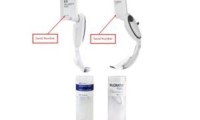-
FDA signs off on new uses for Astellas and Pfizer’s Xtandi, Merck’s Keytruda
- Source: drugdu
- 117
- November 21, 2023
-
AstraZeneca Cancer Drug Is First in Class, But FDA Nod Is Narrower Than Expected
- Source: drugdu
- 117
- November 20, 2023
-
FDA approves study of Versameb’s mRNA therapy in urinary incontinence
- Source: drugdu
- 174
- November 20, 2023
-
LetsGetChecked secures first FDA authorization for at-home chlamydia and gonorrhea test
- Source: drugdu
- 136
- November 18, 2023
-
FDA Approves Bristol Myers Squibb’s Augtyro for Non-Small Cell Lung Cancer
- Source: drugdu
- 183
- November 18, 2023
-
CorMedix Wins FDA Approval for Antimicrobial Drug Combo After Two Rejections
- Source: drugdu
- 187
- November 18, 2023
-
BMS Drug Augtyro Gets FDA Approval to Treat ROS1-Positive NSCLC
- Source: drugdu
- 188
- November 18, 2023
-
Takeda’s enzyme replacement therapy approved by FDA for rare blood clotting disorder
- Source: drugdu
- 98
- November 16, 2023
-
FDA deems stolen Medtronic scopes problem a Class I recall
- Source: drugdu
- 98
- November 15, 2023
-
Acon receives first FDA clearance for over-the-counter COVID-19 antigen test
- Source: drugdu
- 99
- November 14, 2023
your submission has already been received.
OK
Subscribe
Please enter a valid Email address!
Submit
The most relevant industry news & insight will be sent to you every two weeks.













